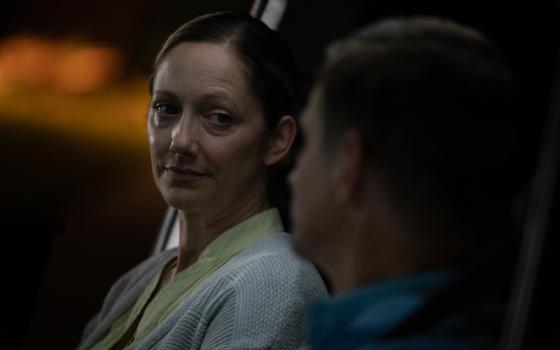
Brussels, Belgium — Appearing before a special parliamentary commission on sexual abuse of children three days before Christmas, Archbishop André-Joseph Léonard of Mechelen-Brussels told the commission that he saw no reason for the church to compensate victims of sexual abuse.
"The civil court must determine the compensation and the offender must pay," Léonard said. Commission members reacted with surprised amazement.
Just the day before Léonard's appearance, Cardinal Godfried Danneels, who retired as archbishop of Mechelen-Brussels a year ago, had prepared the commission for a different kind of archiepiscopal response.
Danneels had told the same commission that the church must react with humility and make some profound gestures, including compensation to victims.
"For too long," Danneels said, "the church thought only about itself and about its priests and now it is time to think about the victims of sexual abuse."
The parliamentary panel was created after a church-backed commission revealed in September nearly 500 cases of abuse by priests and lay workers since the 1950s, including 13 victims who committed suicide.
Most members of the parliamentary commission thought that Danneels' testimony was meant to open a door for Léonard, who has had stormy relations with government officials over the sex abuse crisis. The commission had expected Léonard to reveal a compensation package.
Instead, Léonard abruptly slammed the door shut.
During the parliamentary commission hearings, Léonard appeared defiant and at times took sarcastic swipes at the whole enquiry.
"Where will it all end up?" he asked. "Pretty soon authorities will ask for compensation for [unhappy] children resulting from [in vitro fertilization]. … And what about the studies showing the psychological impact on children who have two papas or two mamas [a reference to same-sex marriage]? Will we have to compensate them as well?"
Léonard has been an outspoken opponent of same-sex marriage and has condemned in vitro fertilization as immoral.
Commission members reacted with outrage.
"This is pure provocation and I am shocked," said Stefaan Van Hecke, a Green Party member of parliament.
"I never feel attacked," Léonard shot back.
Commissioner Mieke Stessens, who represents a coalition of gay and lesbian groups, said, "I am starting to think that Léonard gets some kind of secrete pleasure from slamming gays."
Asked to comment on the testimony, Jürgen Mettepenningen, former press officer for Léonard (see earlier story) simply shook his head. He said that Léonard "just can't leave it alone. If you are invited to give testimony before a parliamentary commission on the sexual abuse of children, you have to choose your words carefully. … This is incomprehensible and very painful."
Renaat Landuyt, Socialist Party member of the Belgian federal parliament, told the commission that it was time to thoroughly re-consider Belgian church-state relations. (Clergy salaries, including those of Catholic priests and bishops, are paid by the Belgian government, as are the salaries of teachers in Belgian Catholic schools.)
Van Hecke said that the Belgian government could set up a compensation fund for victims of sexual abuse under specific conditions. "We can compensate victims of sexual abuse," he said "but then we will simply withhold funds from the church."
The day after appearing before the commission, Léonard announced that he would voluntarily donate to a "solidarity fund" to compensate victims of sexual abuse "not because we are obliged to do that, but because we want to show solidarity, as we also regularly do for victims of floods or epidemics."
He added that he expected representatives of other "respectable professions," like medicine and sports, to contribute as well "because abuse is not a monopoly of the church."
Apparently trying to distance himself from Léonard, Bishop Johan Bonny of Antwerp called Léonard's words "unhappily chosen."
When their commission released its report in September, the Belgian bishops had pledged to set up a "center for recognition, healing and reconciliation," staffed by four experts who would work with church and state institutions and draw up plans for financial compensation. The bishops are expected to take up these plans early in 2011.
Meanwhile, Léonard has said that after Christmas he will not hold back on his own public observations about this and a variety of issues confronting the church today.
[John A. Dick is a retired historical theologian and long-term resident of Belgium. He currently serves as director of the Jean Jadot Chair for the Study of Religion and Values in Society being established at both Louvain universities.]

